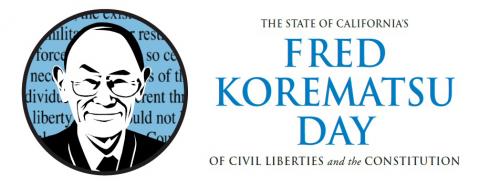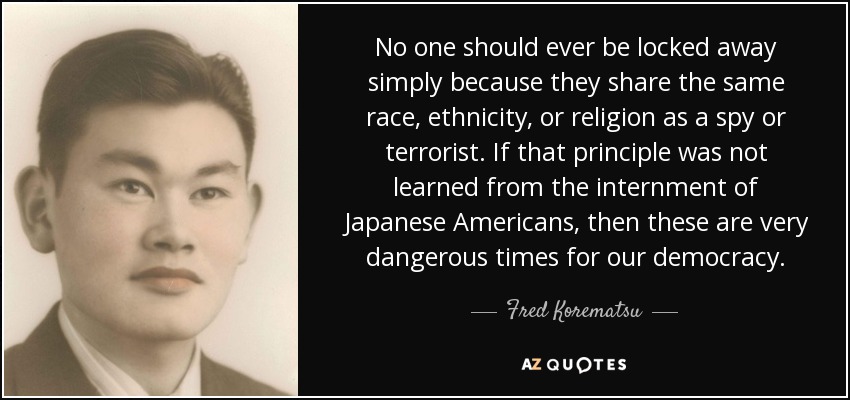On 2/19/17, the 75th Anniversary of the Japanese Internment Order


Remember that the US Supreme Court upheld the internment orders in Korematsu v. US., convicting US citizen Fred Korematsu for refusing to comply with the order. The Korematsu decision has long been viewed as one of the “ante-canon” landmarks of constitutional law, along with Dred Scott and Plessy v Ferguson. But it has never been overruled by the Supreme Court, so in a sense it lies in wait…
Korematsu’s conviction was finally overturned in 1998 by a California federal court that found that the Supreme Court decision was based on a fraudulent military report, and Clinton gave him a presidential medal of honor. The dissent of Robert Jackson (former chief US prosecutor in Nuremberg) in Korematsu is worth revisiting today:
“But once a judicial opinion rationalizes such an order to show that it conforms to the Constitution, or rather rationalizes the Constitution to show that the Constitution sanctions such an order, the Court for all time has validated the principle of racial discrimination in criminal procedure and of transplanting American citizens. The principle then lies about like a loaded weapon, ready for the hand of any authority that can bring forward a plausible claim of an urgent need. Every repetition imbeds that principle more deeply in our law and thinking and expands it to new purposes. All who observe the work of courts are familiar with what Judge Cardozo described as “the tendency of a principle to expand itself to the limit of its logic.” [*] A military commander may overstep the bounds of constitutionality, and it is an incident. But if we review and approve, that passing incident becomes the doctrine of the Constitution. There it has a generative power of its own, and all that it creates will be in its own image. Nothing better illustrates this danger than does the Court’s opinion in this case.”On 2/19/17, the 75th Anniversary of the Japanese Internment Order | Bill Ayers:
